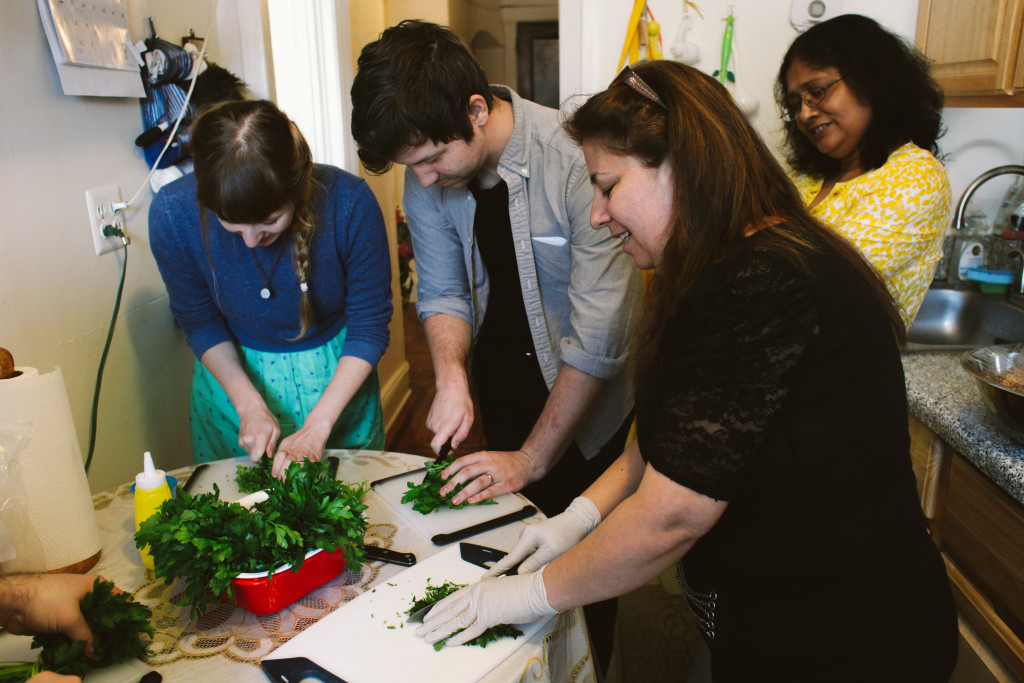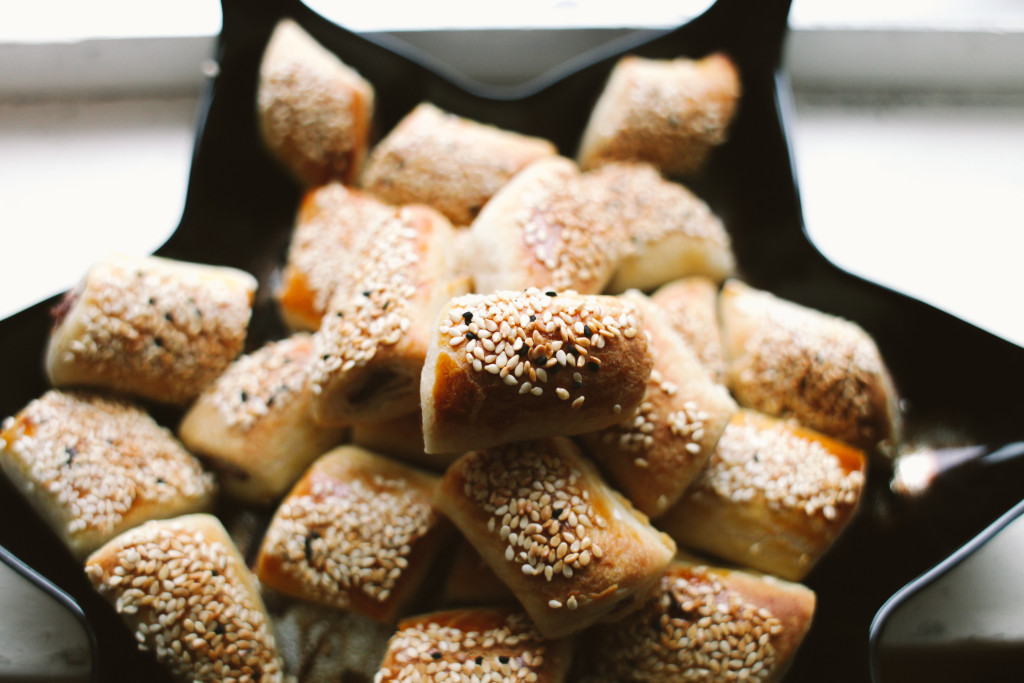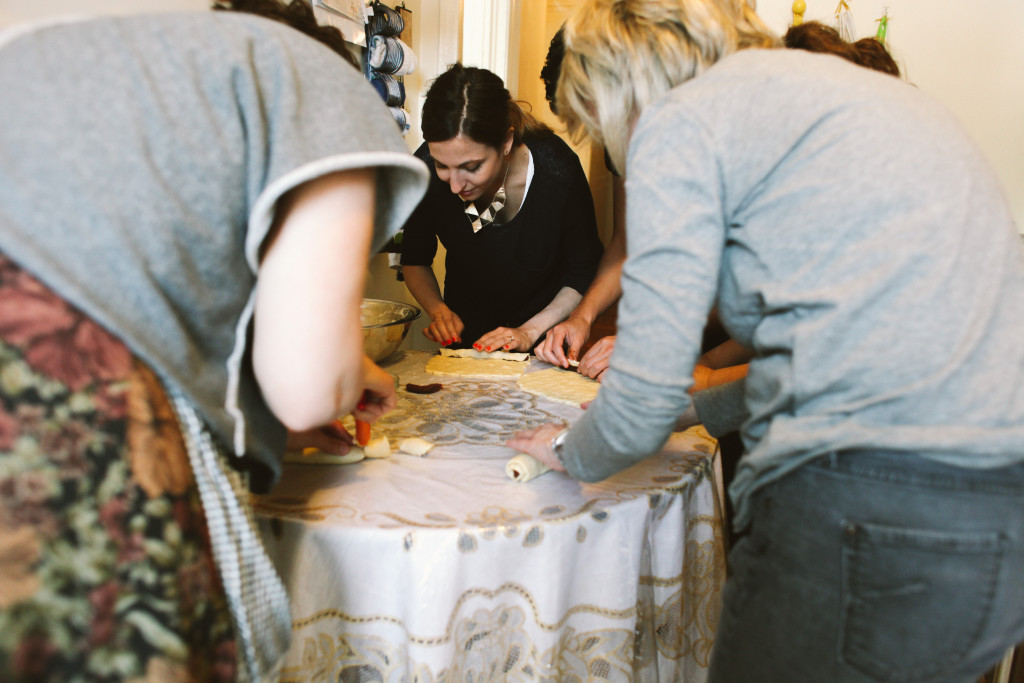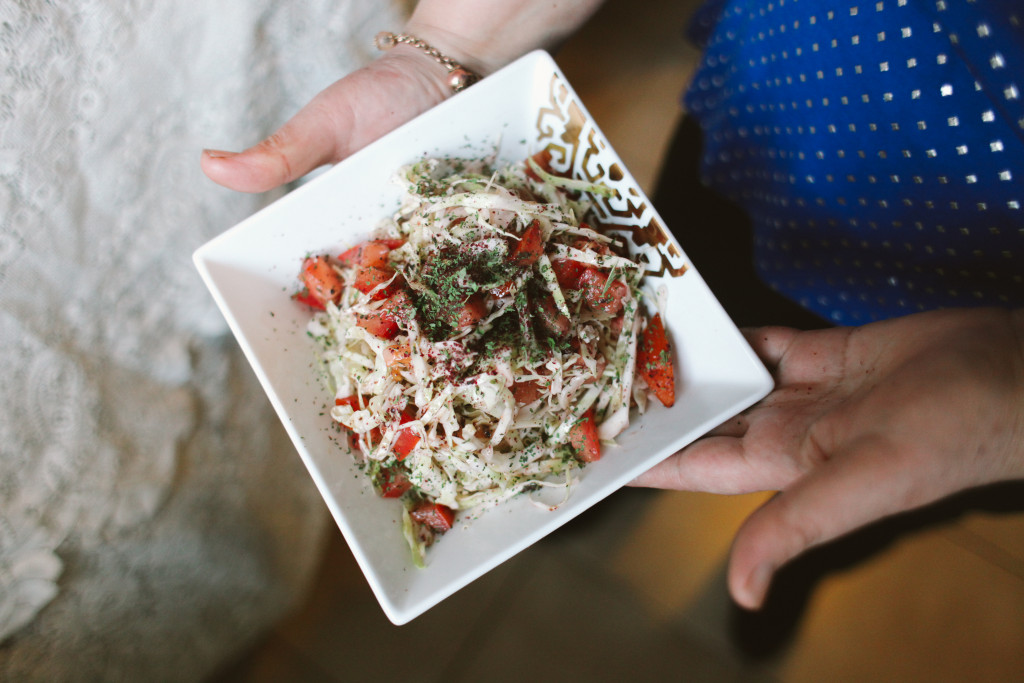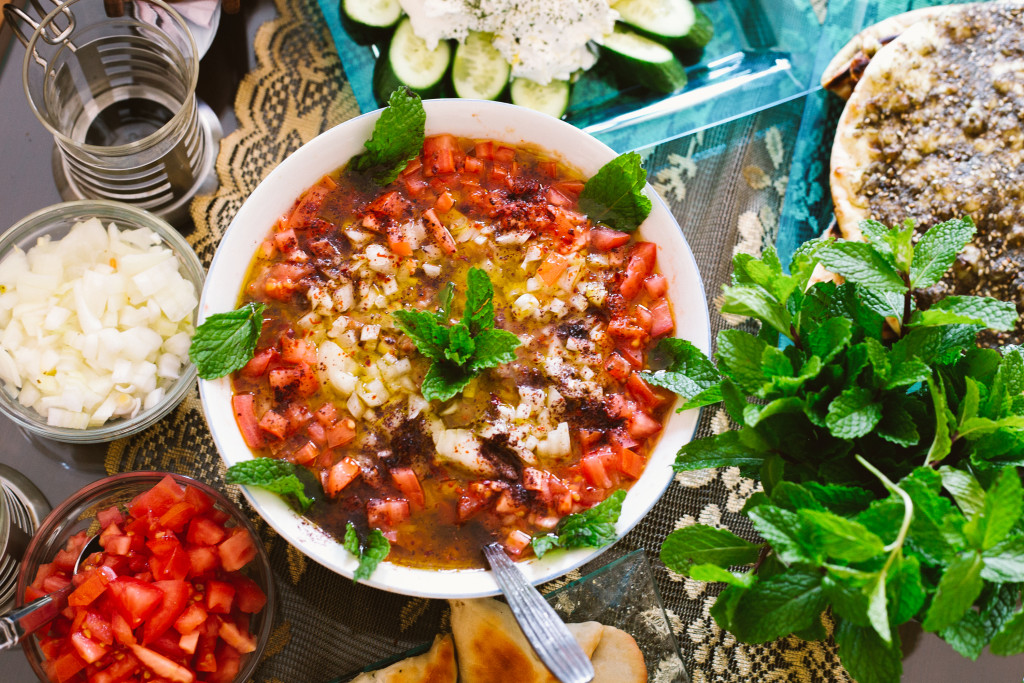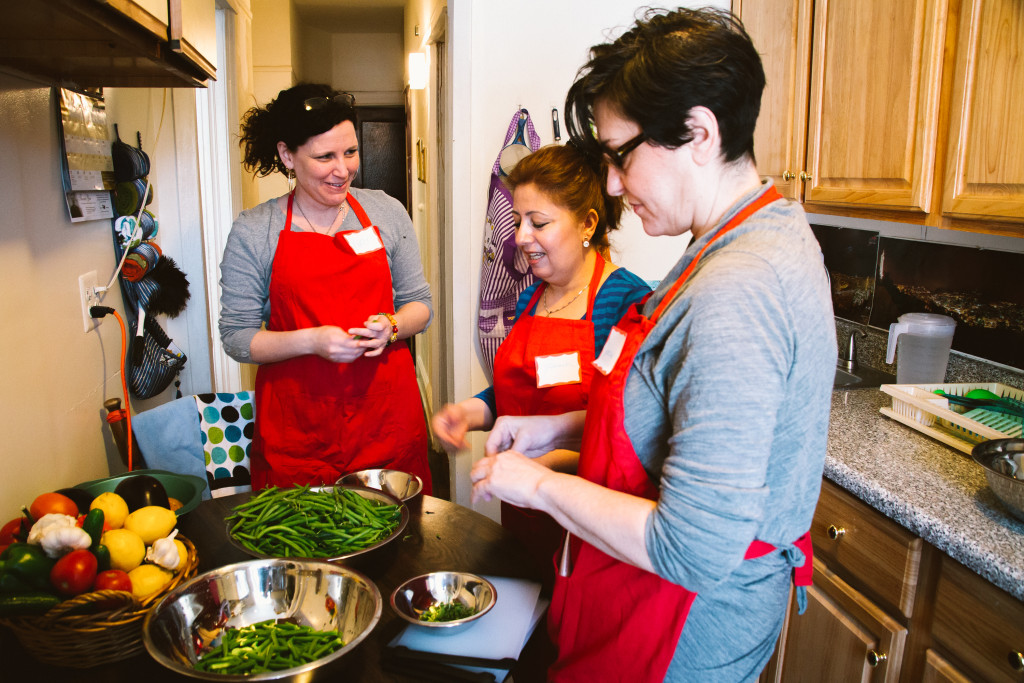Experience Culture Through Cuisine During An Evening With League of Kitchens
It was a rainy day in New York City. No one was out that day. But the gracious welcome from Jeannette and her family in Bay Ridge, Brooklyn provided all the warmth necessary, and then some, to get me the mood for sharing culture and the pleasure of cooking. As someone who is a total walking disaster in the kitchen, I was nervous about knocking things over, cutting myself, or burning something. As a Lebanese immigrant in the U.S. since 2006, whose third language is English, Jeannette was concerned she might not be clear in her instructing. But no one got hurt, including the food, and there were no language barriers whatsoever.
Originally from Zahle, Jeannette has three kids currently in college. “I’m very lucky to be here in America because it provides a good opportunity for education for my kids,” shared Jeannette. “I just want my family to be healthy and I love to host people.”
For six to seven hours, Conscious Magazine’s own Sarah Stanton and I diced, stirred, and ate the day away. Suffice to say, Jeannette fed us enough to last us for an entire week with the healthiest and freshest ingredients. While Lebanese eaters love meat, Jeannette had us prepare vegetarian dishes to mix things up. We started the adventure with roasting an eggplant and making baba ghanoush. Hours later the you could still taste the roasted element. Then we made mujaddara (lentil and rice porridge), a staple in Lebanese kitchens. Saletet malfoof (cabbage salad) was next on the agenda. I hadn’t worked with my hands that much in a long time. Feeling the cabbage and life of the food was somewhat of a holistic experience. We also cooked lubiyeyh (green beans stewed with tomatoes), roz bil shaghrieh (rice with vermicelli), and a slew of maamoul (semolina shortbread cookies). The maamoul did me in, and I could barely move after consuming the delicious desserts that tasted of rose water and orange blossoms.
After the feast, Sarah and I joined Jeannette and her sister in the living room for tea and stories of Lebanon. We watched videos showcasing Beirut’s beautiful beaches and the city’s top sky destination. How can Beirut have a top skiing destination? It does. We learned about the luxurious weather and fresh produce. We learned about fatalities of the Lebanese Civil War. But the greatest lesson bestowed upon us that day was how much cross cultural experience can expand your cooking skill set, appetite and heart.
Photos: League of Kitchens
LEARN + CONNECT
Learn more about League of Kitchens
Connect via Facebook and Twitter
FROM THE EDITOR
At Conscious, we are inspired by remarkable people, and so we set out to tell stories that highlight real human interactions and human dignity. You can read more stories like this when you Subscribe.

